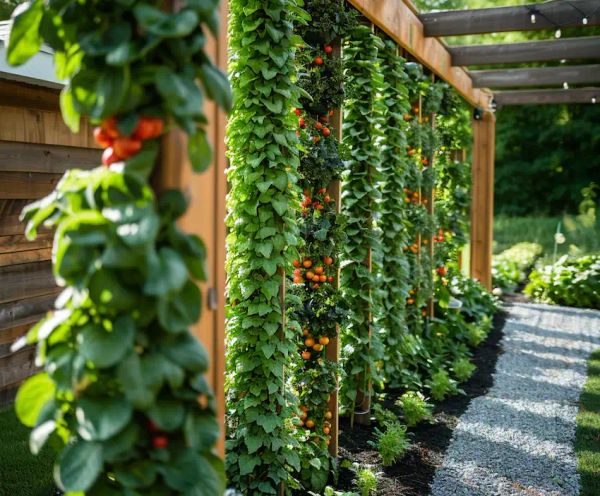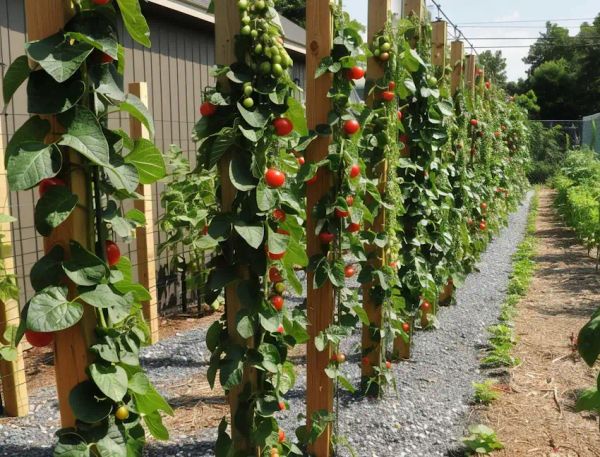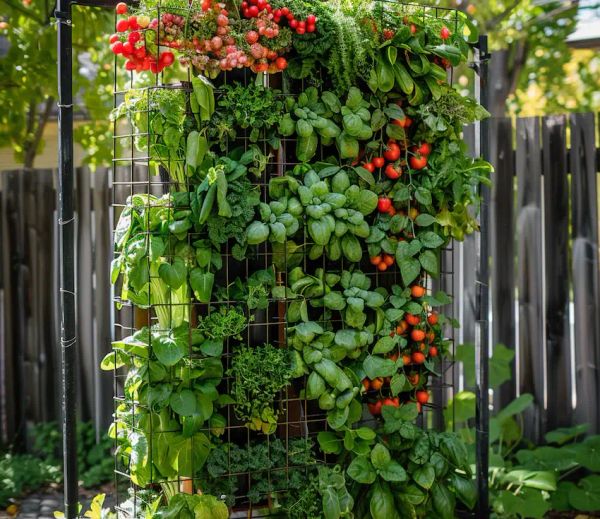Vertical gardening is a great way to optimize space in your garden, especially if you have a small balcony garden or a spacious backyard. Not only does it save space, but it also improves air circulation, reduces the risk of disease, and makes harvesting easier. In this article, we will guide you through the process of staking and trellising your plants, ensuring they grow healthy and strong.
Understanding Staking and Trellising
Staking involves driving a stake into the ground next to a single-stemmed plant, such as tomatoes or peppers, and tying the plant to the stake as it grows. On the other hand, trellising provides a framework for vining plants like cucumbers, peas, and beans to climb on. Trellises can be made from various materials and add a decorative touch to your garden.
Materials You Will Need
To stake your plants, you will need bamboo, wooden, or metal stakes that are at least 6 feet tall. For trellising, you can choose from ready-made trellises, cattle panels, netting, or string. Soft ties, twine, or strips of fabric will be useful for securing your plants to the stakes or trellises. Additionally, you will need a hammer or mallet, garden shears, and possibly a drill.
How to Stake Plants
- Select the Right Stake: Choose a stake that is tall enough to support your fully grown plant. Most plants will require a stake that is at least 6 feet tall.
- Position the Stake: Drive the stake into the ground about 4-6 inches away from the base of the plant to avoid damaging the roots. Use a hammer or mallet to firmly secure the stake in the ground.
- Tie the Plant: As your plant grows, gently tie it to the stake at several points along its length. Use soft ties or twine to avoid damaging the stem. Leave some slack in the ties to accommodate growth.
How to Install a Trellis
- Choose a Trellis: Select a trellis that suits your space and the type of plant you are growing. Vertical trellises are ideal for climbing plants, while horizontal netting works well for peas and beans.
- Install the Trellis: For free-standing trellises, drive the legs into the ground to stabilize them. If the trellis needs to be attached to a wall, use brackets and screws to secure it in place.
- Train Your Plants: Guide the vines or stems of your plants through the trellis to encourage vertical growth. Use twine to loosely tie the vines to the trellis for additional support.
Tips for Successful Vertical Growth
Here are some additional tips to ensure successful vertical growth in your garden:
- Start Early: Install stakes and trellises at the time of planting to minimize disturbance to the roots.
- Check Ties Regularly: As plants grow, adjust the ties to prevent constriction and support new growth.
- Maximize Sunlight: Position trellises and stakes to ensure your plants receive ample sunlight throughout the day.
- Prune as Needed: Pruning certain plants can promote more productive upward growth.
DIY Trellis Recipe: Simple Cucumber Trellis
If you’re looking for a DIY trellis idea, here’s a simple one for growing cucumbers:
Materials:
- 4 wooden posts (7 feet tall)
- Garden netting or chicken wire
- Hammer and nails (or staple gun)
- Twine
Steps:
- Create the Frame: Position the four wooden posts to form a square or rectangle in your garden bed. Hammer each post at least 1 foot into the ground for stability.
- Attach the Netting: Stretch garden netting or chicken wire across the frame, securing it with nails or a staple gun. Make sure it’s tight and even.
- Plant Your Cucumbers: Plant cucumber seeds or seedlings at the base of each post.
- Guide the Vines: As the cucumber plants grow, gently guide them towards the trellis. Use twine to loosely tie the vines to the netting if needed.
By following these tips and techniques, you can easily stake and trellis your plants, creating a more productive and visually appealing garden. Whether you’re an experienced gardener or just starting out, vertical gardening is a fantastic way to make the most of your growing space.







